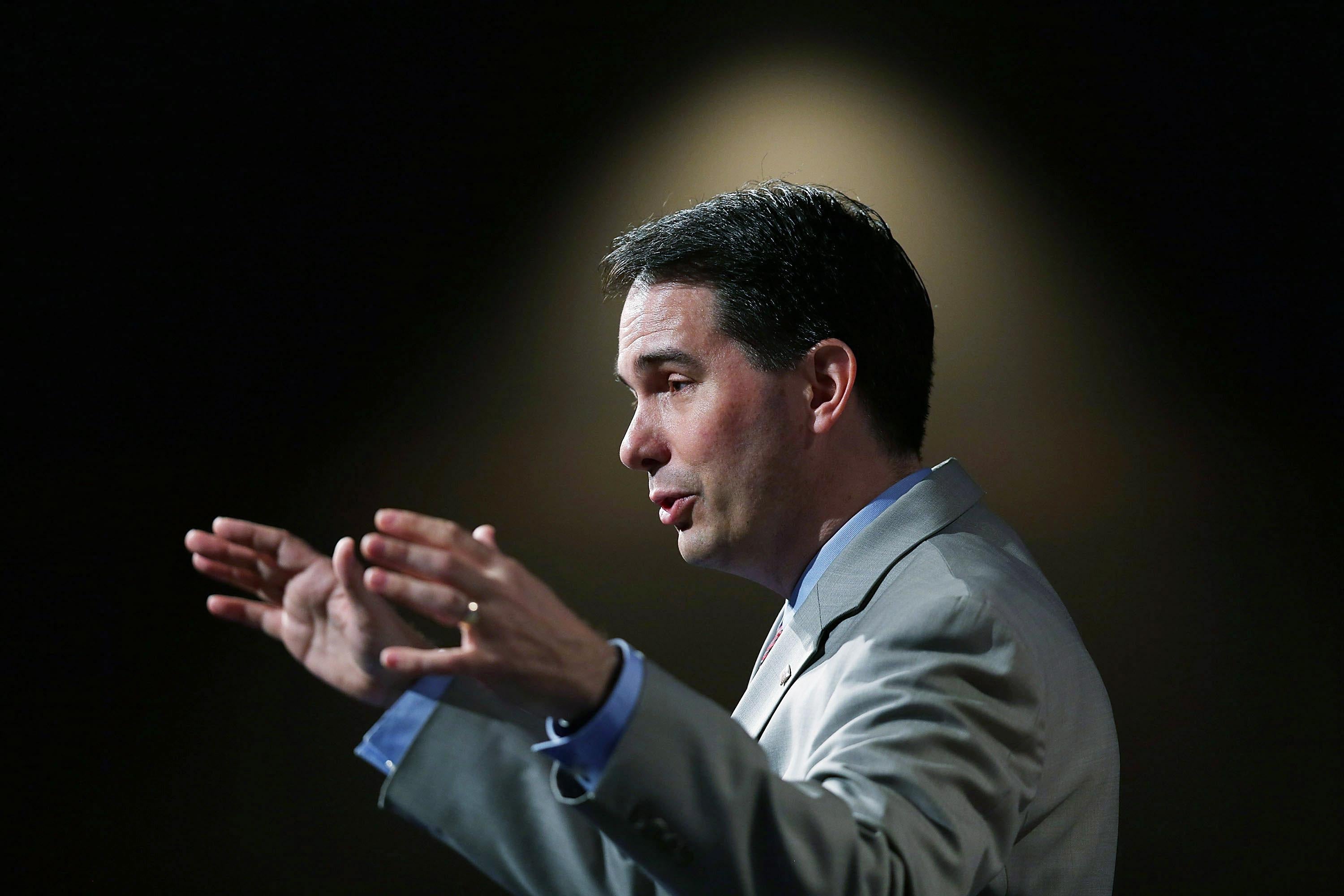In July, Wisconsin governor and presidential candidate Scott Walker signed a budget that slashed $250 million from his state’s higher education system. Wednesday, he signed a bill that would spend $250 million of taxpayer funds on a new stadium for the NBA’s Milwaukee Bucks.
It is difficult to think of a clearer illustration of a politician’s comically misplaced priorities.
I should say upfront that, if you want to get nit-picky about it, the two figures aren’t exactly comparable. For starters, the stadium spending will be spread out over 20 years. And once you include bond interest, the cost to Wisconsin residents is expected to hit $400 million. Meanwhile, only about $80 million will be coming exclusively from the state government—the rest will basically be financed by the city and county of Milwaukee, and by a $2 surcharge on tickets to events at the Bucks’ current stadium. You could also argue that, if they become permanent, the university system cuts could save far more than $250 million over the long term.
But, really, there’s no need to get stuck in the weeds here. Because what Wisconsin has is a governor who is willing to excise a massive chunk of his state’s education budget in the name of fiscal prudence while flushing hundreds of millions of dollars down the drain in order to subsidize a fancy arena.
Walker has tried to frame the Bucks affair as a matter of pragmatism, of course. He claims that, if the team leaves Wisconsin, which it well might without a new home, the state will miss out on $299 million of tax revenues from NBA player salaries over the next two decades. That’s why Walker has been saying it will be “cheaper to keep them.”
This is silly. The $299 million figure is still less than the $400 million tab Wisconsin residents will end up on the hook for. Moreover, Walker’s projection makes big assumptions about the rate at which NBA salaries will increase, which is basically unknowable. As renowned sports economist Andrew Zimbalist notes, it likely overstates how much the state would lose in the event of a Bucks departure, since player salaries are paid in part with the revenue from ticket sales to locals. Without a team, former fans would probably spend those dollars elsewhere, and the government would get a chance to tax them as they cycled through the economy.
The bigger issue here, of course, is that sports arenas and stadiums tend to be a waste of public money, because they do little to spur economic development. This is simply not a controversial point these days. And yet Walker is willing to rationalize burning public dollars to fund one, while slashing funding for a higher education system that can and does act as an engine of growth. It may be that, like so many state politicians and mayors, he’s simply cowed by the idea that a professional sports team will pick up and leave. Or maybe he really believes his own excuses—which, frankly, would be even scarier.
